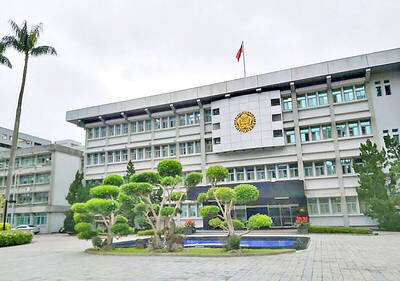Taiwanese have had misgivings about the safety of Japanese food since the nuclear disaster that followed the massive March 2011 earthquake and tsunami, and Japan should have more patience in dealing with the issue, Association of East Asian Relations chairman Lee Chia-chin (李嘉進) said.
Lee said Taiwan is Japan’s third-largest export market for its agricultural products. For example, 90 percent of Aomori Prefecture’s apple exports go to Taiwan, he said.
Lee said it was only natural for people to be concerned about food safety, and if doubts exist about Japanese food, Japan should go out of its way to put Taiwanese at ease.
“The matter has nothing to do with politics,” Lee said.
Japan has expressed its displeasure with a move by the Ministry of Health and Welfare to tighten regulations on Japanese food imports after products from five nuclear-affected prefectures — Gunma, Fukushima, Ibaraki, Tochigi, and Chiba — were found on the Taiwanese market last month with faked labels.
The new measures, requested by the legislature, are to require Japanese food products to show their specific places of origin rather than just the country of origin, and some products would also require a radiation inspection certificate.
Lee was responding to remarks by a member of the Japanese Diet from Gunma Prefecture, who said in a meeting on Friday that Taiwan’s tougher stance on food imports was a political move.
“The patience of Gunma has its limits, and it will soon explode,” Hiroyoshi Sasakawa said, while another Japanese lawmaker said that “it is time for the Japanese government to take the case to the WTO.”
Japanese Prime Minister Shinzo Abe’s administration said it attaches great importance to the issue and plans to send a delegation headed by his special adviser to Taipei on Thursday.
One Liberal Democratic Party official said that the visit had been previously scheduled, but the issue of Taiwan tightening regulations on imported Japanese food was added to the agenda after the dispute emerged.
Members of the Japanese Diet are all best friends of Taiwan, and “everything can be discussed between good friends,” the party official said.

The German city of Hamburg on Oct. 14 named a bridge “Kaohsiung-Brucke” after the Taiwanese city of Kaohsiung. The footbridge, formerly known as F566, is to the east of the Speicherstadt, the world’s largest warehouse district, and connects the Dar-es-Salaam-Platz to the Brooktorpromenade near the Port of Hamburg on the Elbe River. Timo Fischer, a Free Democratic Party member of the Hamburg-Mitte District Assembly, in May last year proposed the name change with support from members of the Social Democratic Party and the Christian Democratic Union. Kaohsiung and Hamburg in 1999 inked a sister city agreement, but despite more than a quarter-century of

The Ministry of Foreign Affairs (MOFA) yesterday expressed “grave concerns” after Singaporean Prime Minister Lawrence Wong (黃循財) reiterated the city-state’s opposition to “Taiwanese independence” during a meeting with Chinese Premier Li Qiang (李強). In Singapore on Saturday, Wong and Li discussed cross-strait developments, the Singaporean Ministry of Foreign Affairs said in a statement. “Prime Minister Wong reiterated that Singapore has a clear and consistent ‘one China’ policy and is opposed to Taiwan independence,” it said. MOFA responded that it is an objective fact and a common understanding shared by many that the Republic of China (ROC) is an independent, sovereign nation, with world-leading

Temperatures in northern Taiwan are forecast to reach as high as 30°C today, as an ongoing northeasterly seasonal wind system weakens, the Central Weather Administration (CWA) said. CWA forecaster Tseng Chao-cheng (曾昭誠) said yesterday that with the seasonal wind system weakening, warmer easterly winds would boost the temperature today. Daytime temperatures in northern Taiwan and Yilan County are expected to range from 28°C to 30°C today, up about 3°C from yesterday, Tseng said. According to the CWA, temperature highs in central and southern Taiwan could stay stable. However, the weather is expected to turn cooler starting tonight as the northeasterly wind system strengthens again

The Ministry of Justice Investigation Bureau (MJIB) has been investigating nine shell companies working with Prince Holding Group, and the Taipei District Prosecutors’ Office is seeking further prosecution of alleged criminals, a source said yesterday. The nine companies and three Taiwanese nationals were named by the US Department of the Treasury’s Office of Foreign Assets Control (OFAC) on Oct. 14 as Specially Designated Nationals as a result of a US federal court indictment. Prince Holding founder Chen Zhi (陳志) has been charged with fraud, conspiracy, money laundering and overseeing Prince Holding’s suspected forced-labor camps in Cambodia, the indictment says. Intelligence shared between Taiwan,